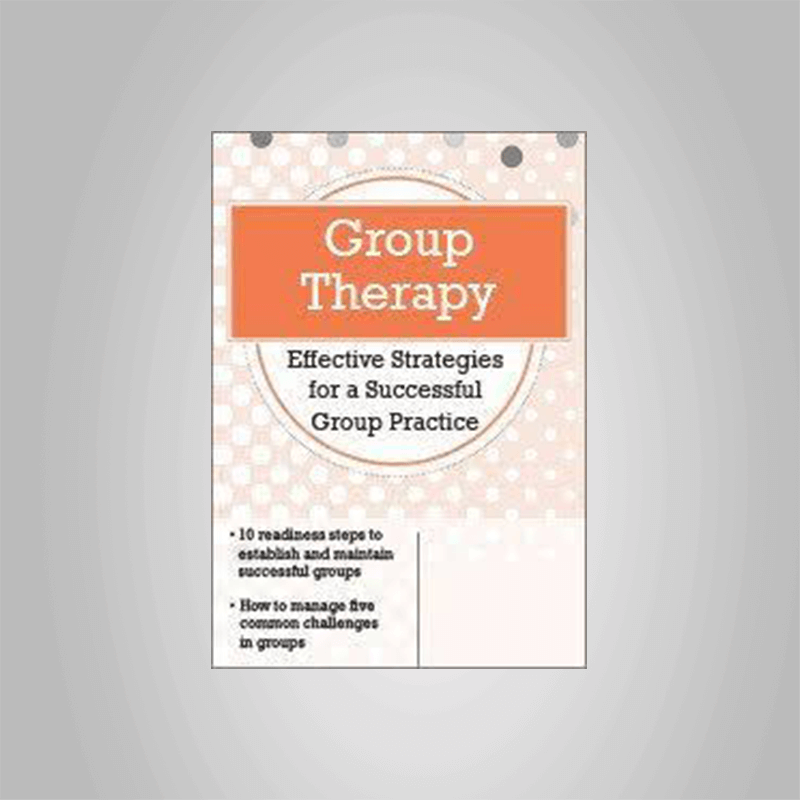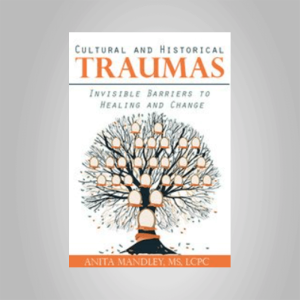Group Therapy: Effective Strategies for a Successful Group Practice – Greg Crosby10 readiness steps to establish and maintain successful groupsHow to manage five common challenges in groupsSeveral strength-base group approaches for producing resilience and promoting group cohesionGroup therapy is an effective treatment with tremendous potential to help a wide variety of clients.This workshop will describe how to create a viable group that addresses individual needs while also attending to the importance of the therapeutic properties of the group. This workshop is for group settings and will provide practical models and skills to enhance group effectiveness and increase the therapeutic qualities that are possible in all types of groups.Watch this recording as group expert, Greg Crosby, will teach the core skills of group therapy that will enhance group treatment and create vitality and cohesiveness in your group. You will learn the steps to help clients engage in groups and improve retention. This workshop will help you think in new ways on how to link group therapy to clients’ learning styles. You will learn how to develop rituals for beginning and ending each group session and develop strategies on how to manage challenges in groups. You will be informed of the latest perspectives on co-therapy, mentoring, supervision and ethics. Greg brings a holistic and integrative view of group therapy from his diverse group practice background in a wide variety of settings. He is known for his engaging way of integrating ideas into practice through the use of case studies, exercises and storytelling.Identify the ten readiness steps to lead and maintain an effective group practice.Explain how to foster experience of universality and vicarious learning through the five stages of group development.Identify the types of groups that best fit your practice.Examine the four lessons of interpersonal neurobiology and how it applies to group therapy.Discover how to individualize group treatment and maximizing group cohesion by integrating eight learning strengths into groups.Define therapeutic entrance and exit rituals in all types of groups.Examine how to therapeutically respond to five common challenges in groups.Explore the ethical concerns of group therapy.Why Groups are Necessary and ImportantNeed for groups in 21st century technological societyResearch on group effectiveness with clinical populationsMatch and identify group therapies to your practiceTen Readiness Checklist Skills to Develop a Successful Group PracticeAdapt skills from forming a group to final sessionThe evidence behind each readiness stepSpecial emphasis on population oriented approachFour Lessons of Interpersonal Neurobiology and GroupsThe brain is strongly emotionalThe brain is interpersonal, needing safety and securityGroup members learning styles to enhance acceptance and cohesionStorytelling to improve intra and interpersonal understandingGroup Therapy and Nine Learning Styles: A New PerspectiveEducation theory of Howard Gardner to group therapy and interventionsNine learning stylesEnhance connectedness and change in your groupThe Five Stages of Group DevelopmentGroup stages: forming, initial, transition, working and endingUnderstand leaderships styles in each stageFour key roles that a group needs to functionHow to integrate group process and contentEntrance and Closing Group RitualsHow rituals enhance the group process and treatmentImportance of linking and summarizingIdentify goals and build a maintenance planFive Common Challenges Found in GroupsCommon challenges: Lack of referrals, high dropout rate, dealing with challenging group behaviors, lack of group cohesion and clinical documentation challengesTherapeutic management strategiesImportance of intervening with the group in mindHow not to panic and utilize the group processCo-Leadership and MentoringMentoring for your first groupWhen is a co-leader needed?Research on solo leadership and co-led groupTips on How to Integrate Skills and Group ProcessArt of integrating group process with skillsPacing disclosures and skillsSimple, realistic and achievable goalsEthics and Group TherapyConfidentiality, boundaries and dual relationshipsTips on constructing group notesRole of supervision/training in group therapy
 Fundamentals of Ericksonian Hypnotherapy Vol. II – Milton H. Erickson
₹4,980.00
Fundamentals of Ericksonian Hypnotherapy Vol. II – Milton H. Erickson
₹4,980.00
 Fundamentals of Ericksonian Hypnotherapy Vol. I – Milton H. Erickson
₹4,980.00
Fundamentals of Ericksonian Hypnotherapy Vol. I – Milton H. Erickson
₹4,980.00
Group Therapy: Effective Strategies for a Successful Group Practice – Greg Crosby
₹6,474.00






